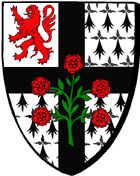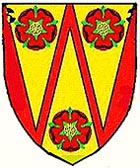
Encyclopédie Marikavel-Jean-Claude-EVEN/Encyclopaedia/Enciclopedia/Enzyklopädie/egkuklopaideia
 |
|||

England Bro Saoz |
blason ou logo en attente | 
Lancashire Bro Lancaster |
|
Ribchester Bremetenacum Veteranorum |
| pajenn bet digoret e 2004 | page ouverte en 2004 |
* forum du site Marikavel : Academia Celtica |
dernière mise à jour 10/10/2021 14:19:47 |
![]()
| Définition : ville d'Angleterre; comté de Lancashire; camp romain Bremetenacum, sur la rivière Ribble. |
|
![]()
|
Extrait de la carte Ordnance Survey : Map of Roman Britain. |
![]()
Histoire :
|
![]()
| Étymologie :
* Rivet & Smith : Place-Names of Roman Britain, p 277 : SOURCES - RIB 583, found at Ribchester, the shaft of the pedestal of a monument to Apollo Maponus dedicated for the welfare of the N(UMERI) EQ(UITUM) SAR(M(ATARUM) BREMETENN(ACENSIUM); dated A.D 238-244, perhaps later. - Itinéraire d'Antonin, 4815 (Iter X) : BREMETONNACI; var. BREMETONACI. - Ravenna, 1077 : BRESNETENACI VETERANORUM; var. BRESNETENOTI. - Notitia Dignitatum, XL54 : Cuneus Sarmatorum, BREMETENRACO; variantes : BREMETEMRACO, BREMETERACO. DERIVATION. Given the inscription, the correct form of the name is not in doubt, the slight variations in other texts being readily explicable as scribal errors; the -nn- in some forms has no authority. Jackson in Britannia, I (1970), 69, gives the British name as *Bremetonacon, based as often on a river-name, *Bremetona 'roaring river'; this in turn has a base *brem- as in the previous entry, with suffixes *-et- (perhaps as in Carvetii), *-on(o)- (as in Carnonacae, Creones, Dumnonii, Uxacona, Venonis), and adjectival *-aco- (see BRAVONIACUM), in this instance comparable with its use in *Calacum. Forms other than those in AI show an assimilation (confirmed by the inscription) of e-e-o to e-e-e. The Sarmatians, brought to Britain in A.D. 175, were subsequently settled in this area (Richmond, 'The Sarmatae, Bremetennacum Veteranorum and the Regio Bremetennacensis', JRS, xxxv (1945), 15 ff.) and this accounts for the name in Ravenna. IDENTIFICATION. The Roman fort at Ribchester, Lancashire (SD 6535); the river Ribble, whose proper name seems to have been Belisama (q.v.), has swept away about a third of the fort. Explication étymologique, selon ces auteurs : - d'un nom de la rivière près de laquelle cette forteresse est bâtie : *Bremetona : rivière rugissante ( JCE = bouillonnante; cf : *Bhr°w). (voir Burwens / Bravoniacum). Cette rivière porte aujourd'hui le nom de River Ribble. ***** Commentaire JC Even : La Notitia Dignitatum insère la ligne 54 sous la rubrique "Item per lineam ualli", c'est à dire que ce camp fait partie du système de défense arrière du Mur d'Hadrien, bien que n'étant pas lui-même sur le Mur. Noter que l'inscription RIB 583 a été rédigée en hommage au dieu Apollo Maponus par l'unité de cavalerie sarmate. Les Sarmates semblent avoir été introduits dans cette région vers 175. (R&S, p 277) *** * Eilert Ekwall : "Ribelcastre, DB; Ribbelcestre, 1215 P. Roman fort on the river Ribble". *** |
![]()
| Sources :
* I.A Richmond : Roman Britain. * Eilert Ekwall : The Concise Oxford Dictionary of English place-names. Clarendon Press. fourth edition, 1980. * Ordnance Survey : Map of Roman Britain. * ALF Rivet & Colin Smith : The Place-Names of Roman Britain. Batsford Ltd. London. 1979. * Peter Salway : Roman Britain.Oxford University Press.1981-1984. |
![]()
![]()